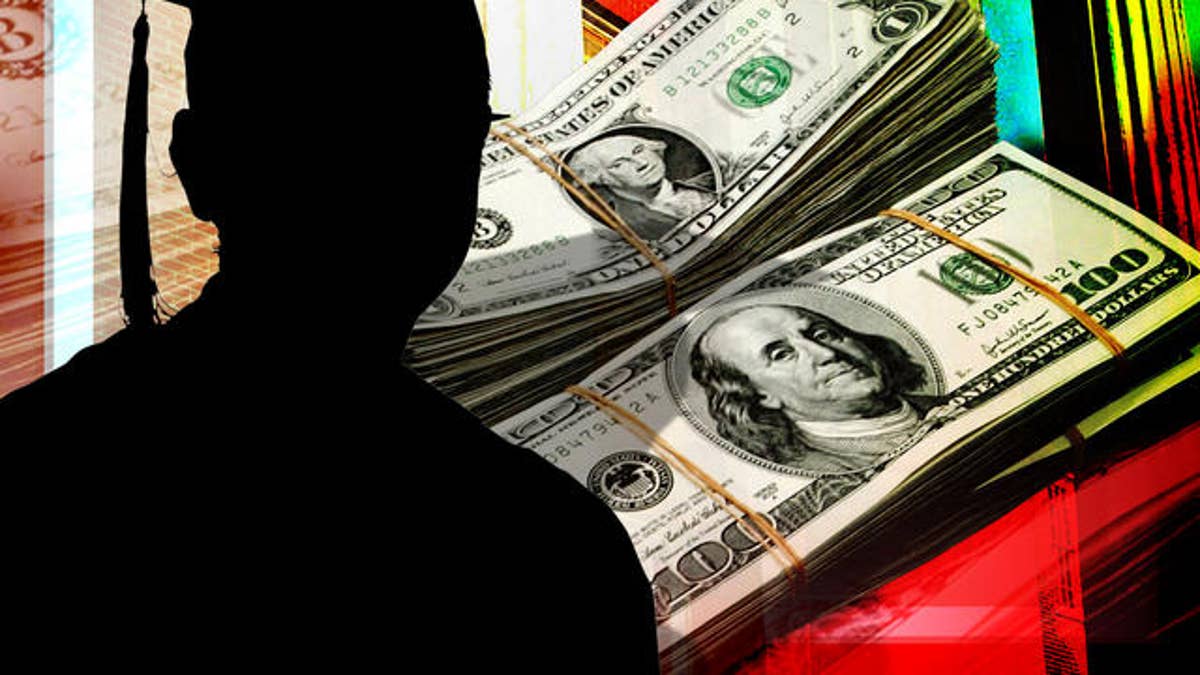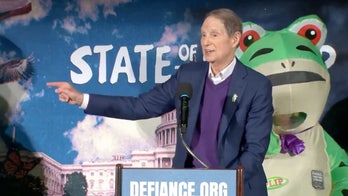
Co-founder of Microsoft Bill Gates, right, and Boston Celtics legend Bill Russell walk in the procession during commencement ceremonies at Harvard University in Cambridge, Mass., Thursday, June 7, 2007. (AP Photo/Michael Dwyer) (AP)
Interest rates on student loans are set to double on Monday after lawmakers failed to find a bipartisan solution to keep the federally subsidized borrowing costs down.
The Senate adjourned Thursday night for the July 4 recess without approving a student loan rate package.
With the current, 3.4 percent interest rate on Stafford loans -- the most popular funding for college students – set to expire on July 1, a host of 11th-hour fixes all failed to generate support from both sides of the aisle. Without new legislation -- either to extend the cap, set a new one or find another way to peg the loans – the cap rises to 6.8 percent. Congress could always forge a solution in the following days, even lowering rates retroactively.
The higher rates would add about $3,000 to the total interest on a $23,000 student loan repaid over 10 years.
“At one level it’s modest, but if you have an entry-level position or can’t find work, it starts to add up,” Terry Hartle, senior vice president of the American Council of Education, told FoxNews.com.
Democrats have sought to keep interest on Stafford loans low, saying poor and middle class students need the help to get college educations. Republicans, seeking to cut, or at least control spending, have proposed linking student loans to the financial markets instead of letting Congress set federal lending rates. President Obama included a variation of that market-based approach in the budget he sent to Congress earlier this year, leaving his fellow Democrats trying to block his efforts.
"Why Senate Democrats continue to attack the president's plan is a mystery to me, but I hope he's able to persuade them to join our bipartisan effort to assist students," said Don Stewart, a spokesman for Senate Minority Leader Mitch McConnell.
Senate Majority Leader Harry Reid said recently that the plan to tie rates to the 10-year treasury note yield could never pass and that he couldn’t back something that doesn’t include stronger protections for students and parents.
“There is no deal on student loans that can pass the Senate because Republicans continue to insist that we reduce the deficit on the backs of students and middle-class families, instead of closing tax loopholes for the wealthiest Americans and big corporations,” Adam Jentleson, a spokesman for Reid, told Fox News. “Senate Democrats continue to work in good faith to reach a compromise but Republicans refuse to give on this critical point.”
Democrats said the Senate would vote on July 10 on a one-year extension of the current interest rates. But once rates rise, some experts fear generating votes to rein them back in could prove difficult.
“The sense of urgency could be lost,” Hartle said, “And that means interest rates will [stay] higher.”
Some undergraduates currently pay 3.4 percent or some pay 6.8 percent, depending on their loan structures and many students borrow at both rates. Graduate students and parents borrow from the government at 7.9 percent interest under the current system.
Few students are expected to sign loan documents in July and instead were looking to finalize the aid packages closer to returning to campus in the fall.
“Federal loans are still one of the best options,” Hartle said. “But we could see students that are a little pinched by these rates.”
Fox News' Chad Pergram and The Associated Press contributed to this report.












































